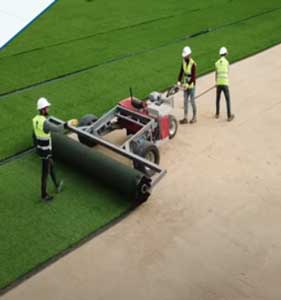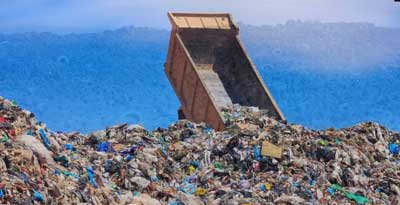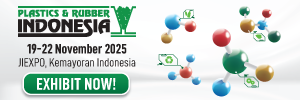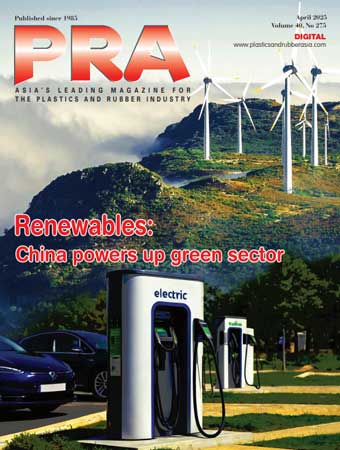Green news: Aduro succeeds in chemical recycling of turf waste; Klean/Terragreen plan 10 ktonne recycling facility in British Columbia

Tech firm Aduro Clean Technologies Inc says it has completed successful initial testing of synthetic turf as a feedstock for its proprietary Hydrochemolytic technology (HCT).
In recent months, Aduro tested samples of synthetic turf waste, commonly used in sports stadiums and landscaping, using its technology with encouraging results. The samples reflected the typical multilayer structure of modern synthetic turf systems, including polyethylene (PE) grass blades, polypropylene (PP) thatch layers, primary and secondary PP backing layers, residual infill materials such as silica sand and crumb rubber and polyurethane adhesives used to secure the backing and fibres. This complex composition, which combines multiple plastics, thermoset adhesives, and inorganic materials, poses challenges for mechanical recycling and limits compatibility with conventional chemical recycling methods that rely on cleaner, more uniform input streams.
Testing showed that Aduro’s chemical recycling process selectively converted the polyolefin components of the turf into shorter-chain hydrocarbon products, which are relevant as potential feedstocks for steam cracking and new polymer production. This was achieved without extensive preprocessing, as the process demonstrated tolerance for the mixed materials and contaminants typically present in aged turf systems. These outcomes contribute to ongoing efforts to evaluate the applicability of Hydrochemolytic to complex waste streams that are not readily addressed by conventional recycling methods.
As part of this initiative, the company received synthetic turf samples from a global industry stakeholder for evaluation. Several other parties have expressed interest in the results, underscoring the growing demand for chemical recycling options in this segment.
Synthetic turf is widely used around the world in applications such as sports fields, landscaping, playgrounds, road medians, commercial rooftops, and indoor training facilities, due to its durability and low maintenance requirements. A single full-sized field can weigh between 200 and 300 tonnes, and in North America, more than 12,000 fields are expected to reach end of their service life within the next five years.
While manufacturers and recyclers have introduced take-back programs and material reuse strategies, these efforts are often constrained by technical and economic limitations. According to HTF Market Intelligence, the synthetic turf recycling market is expected to grow from US$1.8 billion in 2025 to approximately US$5.9 billion by 2032, with a compound annual growth rate (CAGR) of ~15.8%.
Beyond artificial turf, carpets represent a similarly complex and under-addressed waste stream. The World Economic Forum notes that the textile industry generates approximately 92 million tonnes/year of waste globally, a significant portion of which comes from flooring and carpet products. While carpet is not currently part of Aduro’s testing activities, the material’s recovery challenges suggest it could be a future candidate for modular, scalable chemical recycling.
The company’s Next Generation Process (NGP) pilot plant, currently under construction, is designed with the flexibility to process a broad range of feedstocks. Insights gained from the field turf testing program will help inform future operating strategies and feedstock evaluation protocols at the pilot scale.
In other news, Canada’s Klean Industries says it has completed a feasibility study for the development of a 10,000-tonne/year non-recycled plastic pyrolysis facility in Abbotsford, British Columbia. The project is being developed in partnership with Terragreen Investments Inc. (TGI). It represents a significant milestone in the effort to convert waste plastics into high-quality refinery feedstock for the production of sustainable aviation fuel (SAF) and decarbonised road fuels, it adds.

Over the past two years, both companies have been collaborating to explore opportunities for cooperation in establishing multiple facilities across Canada, US, and Africa, with potential expansions into other provinces such as Alberta, Ontario, and Quebec, states such as Washington and New York, and countries such as South Africa and Zambia.
With the initial funding secured, feedstock arranged with Blue Planet Recycling, and the site location finalised, there has been significant interest from various parties regarding the high-quality pyrolysis oil produced by the plant. Both companies are now intensifying efforts to advance the project through permitting and construction, which is scheduled to begin in early 2026.
“At Blue Planet, we’re focused on building industrial-scale systems that recover resources, reduce emissions, and create real economic value from waste. Partnering with Terragreen and Klean Industries aligns with our mission to create closed-loop solutions that are scalable, smart, and sustainable. We’re excited to support this project and future collaborations that move us all toward a true circular economy,” commented Sebastian van Wollen, CEO of Blue Planet.
The facility is located in the heart of the Sumas Industrial Area, a key logistics hub on the Canada/US border. It will utilise advanced thermal conversion technologies to process polyolefin-rich plastic waste streams. The initiative aims to address several key issues outlined in the United Nations Sustainable Development Goals and will provide economic benefits to the local community in British Columbia. Both parties are eager to contribute to the creation of a circular economy in the region.
TGI is well-equipped to manage this project in the Sumas Industrial Area, one of the busiest logistics centres on the Canada/US border in British Columbia.
The Abbotsford facility is designed to operate 24/7 for 330 days a year and is expected to produce over 10 million litres/year of premium-grade pyrolysis oil. The Plastic Pyrolysis Oil (PPO) is intended to be further refined and utilised locally into circular fuels, including Sustainable Aviation Fuel (SAF) and decarbonised road fuels, which will help reduce emissions in hard-to-decarbonise sectors such as aviation and heavy transport.
Plans are in place to expedite the permitting process and finalize project financing in the coming months. The TGI facility will focus on converting controlled and optimised polyolefin plastics, such as PP, PE, LDPE, HDPE and PS into high-quality pyrolysis oil.
The TGI plant will be fully integrated with Klean’s proprietary KleanLoop SaaS platform. This Blockchain-based solution ensures complete transparency and traceability of all incoming feedstock, operational data, carbon offsets, and product sales.
The KleanLoop platform is a vital technological solution designed to address the climate change crisis and prevent further environmental degradation within a socially responsible framework. The platform enables real-time ESG reporting and aligns global standards for decarbonisation, sustainability, and extended producer responsibility (EPR).
(PRA)SUBSCRIBE to Get the Latest Updates from PRA Click Here»












